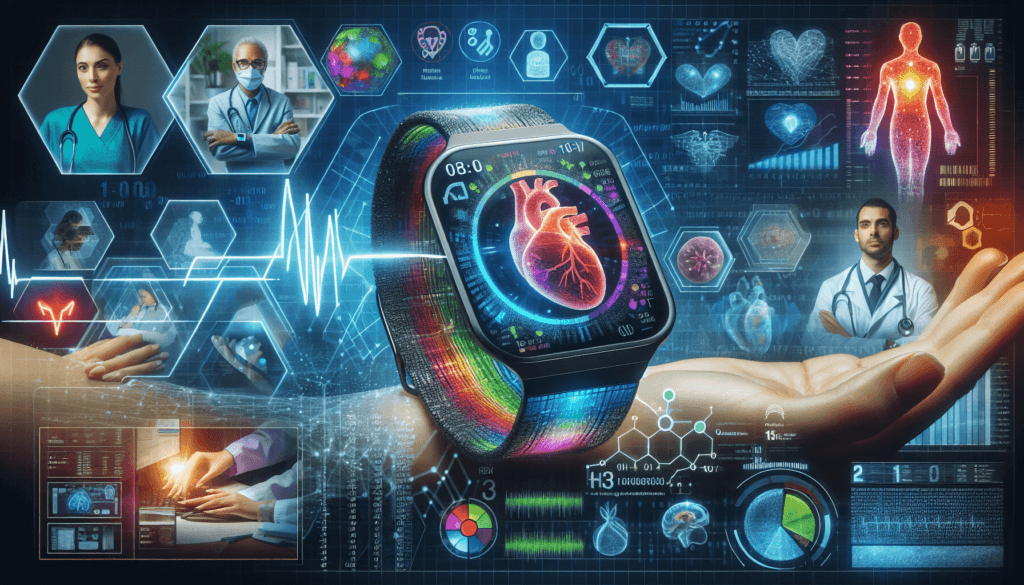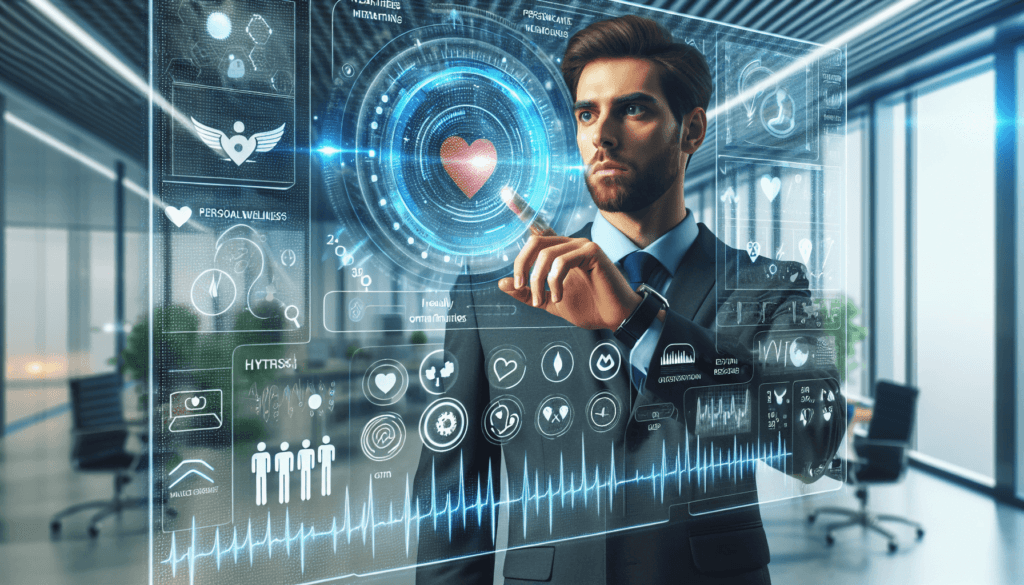In the rapidly evolving world of healthcare, health informatics plays a pivotal role in enhancing personal wellness. By leveraging technology and data-driven approaches, health informatics empowers individuals to take control of their own health and make informed decisions. It enables seamless access to personal health records, facilitates real-time monitoring of vital signs, and empowers users with personalized health recommendations. Through the systematic analysis of health data, health informatics not only provides valuable insights for individuals to manage their well-being but also contributes to the advancement of medical research and healthcare delivery on a larger scale. Harnessing the power of information, health informatics serves as a catalyst in enabling individuals to lead healthier and happier lives.
Table of Contents
The Role Of Health Informatics In Personal Wellness
Health informatics is a specialized field that combines healthcare and information technology to improve the overall well-being of individuals. By collecting and analyzing personal health data, health informatics provides valuable insights and enables personalized health recommendations, disease prevention, and early detection. As technology continues to advance, the role of health informatics in personal wellness becomes increasingly significant.

I. Definition of Health Informatics
A. Overview
Health informatics is the integration of healthcare, information technology, and data analysis to improve the delivery of healthcare services and enhance individual wellness. It involves the collection, analysis, and interpretation of health data to enable informed decision-making. The field utilizes various technologies, ranging from wearable devices to electronic health records, to gather and manage personal health information efficiently and securely.
B. Objective
The primary objective of health informatics is to leverage technology and data to facilitate personalized healthcare outcomes, improve patient experiences, and enhance population health. By using data-driven insights, healthcare providers can make informed decisions, develop personalized treatment plans, and provide timely interventions. This ultimately leads to better health outcomes and improved overall wellness for individuals.
C. Applications
Health informatics has a wide range of applications that contribute to personal wellness. Some of the key applications include:
Population Health Management: Health informatics enables the monitoring, analysis, and management of health data at a population level. This allows healthcare providers to identify health trends, target specific populations for interventions, and allocate resources effectively.
Clinical Decision Support: By utilizing health informatics tools, healthcare professionals can access evidence-based guidelines, clinical protocols, and patient data to make informed decisions about diagnosis, treatment, and care management.
Patient Engagement and Empowerment: Health informatics encourages individuals to actively participate in their healthcare by providing access to their own health data, facilitating communication with healthcare providers, and offering personalized health recommendations.
II. Collecting and Managing Personal Health Data
A. Wearable Devices
Wearable devices, such as fitness trackers and smartwatches, play a significant role in collecting personal health data. These devices track various parameters, including heart rate, sleep patterns, physical activity, and calorie consumption. By continuously monitoring these metrics, individuals can gain valuable insights into their health and make informed decisions to improve their overall wellness.
B. Mobile Applications
Mobile applications focused on health and wellness empower individuals to track and manage their health data. These apps enable users to record their exercise routines, track food intake, monitor sleep patterns, and manage stress levels. By regularly reviewing these data points, individuals can identify areas for improvement and take proactive steps towards a healthier lifestyle.
C. Electronic Health Records
Electronic Health Records (EHRs) are digital versions of patients’ medical records. EHRs centralize personal health information, including medical histories, diagnoses, medications, and test results. By having access to comprehensive and up-to-date health records, healthcare providers can make more accurate diagnoses, provide appropriate treatments, and coordinate care effectively.

III. Analyzing and Interpreting Health Data
A. Data Analytics
Data analytics plays a vital role in health informatics by extracting meaningful insights from complex health data sets. By applying various statistical and analytical techniques, healthcare professionals can identify patterns, trends, and correlations within the data. These insights can help in personalized treatment plans, identify risk factors, and improve health outcomes.
B. Predictive Modeling
Predictive modeling is a technique that utilizes historical health data to forecast future health outcomes. By analyzing previous health information, predictive models can identify individuals who may be at risk for certain medical conditions. This enables proactive interventions and preventive measures to reduce the likelihood of developing such conditions.
C. Machine Learning
Machine learning algorithms can be trained on large health data sets to identify patterns and make predictions. By leveraging the power of artificial intelligence, machine learning models can provide valuable insights into health conditions, recommend personalized treatments, and improve the accuracy of diagnoses. Machine learning algorithms can continuously learn from new data, leading to enhanced precision and better health outcomes.

IV. Enhancing Personal Wellness through Health Informatics
A. Personalized Health Recommendations
Health informatics enables the generation of personalized health recommendations based on individual health data. By analyzing various health parameters, such as physical activity, sleep patterns, and nutritional intake, personalized recommendations can be provided to individuals to promote healthier habits and prevent chronic diseases. These recommendations can include exercise routines, dietary changes, and stress management techniques tailored to individuals’ specific needs.
B. Disease Prevention and Early Detection
Health informatics plays a crucial role in disease prevention and early detection. By continuously monitoring personal health data, health informatics can identify potential risk factors and provide timely interventions. For example, individuals with a family history of diabetes can be regularly monitored for glucose levels, and if any deviations are detected, immediate action can be taken to prevent the development of the disease.
C. Remote Monitoring and Telehealth
Health informatics facilitates remote monitoring and telehealth services, enabling individuals to receive healthcare services from the comfort of their homes. Through the use of wearable devices and real-time communication technologies, individuals can have their health data monitored remotely by healthcare professionals. This allows for proactive interventions, timely advice, and reduces the need for frequent hospital visits.

V. Privacy and Security Concerns
A. Data Protection
As health informatics relies heavily on personal health data, ensuring the privacy and security of this data is of utmost importance. Health systems and technologies should implement robust security measures, including encryption, access controls, and secure storage, to protect personal health information from unauthorized access, breaches, and misuse.
B. Ethical Considerations
Ethical considerations are vital when dealing with personal health data in health informatics. Healthcare providers and technology developers must adhere to strict ethical guidelines to ensure the responsible and ethical use of personal health information. Consent, transparent data usage, and respect for individual autonomy are crucial aspects of ethical health informatics practices.

VI. Challenges and Future Directions
A. Standardization of Health Data
One of the major challenges in health informatics is the standardization of health data. With the increasing variety and sources of health data, there is a need for standardized formats and protocols to ensure interoperability and seamless exchange of information between different health systems and devices. Efforts are underway to establish common standards, such as HL7 and FHIR, to address this challenge.
B. Integration of Health Informatics in Healthcare Systems
The integration of health informatics into healthcare systems is still an ongoing process. While the potential benefits are widely recognized, there are practical challenges in terms of infrastructure, workflow integration, and training healthcare professionals. Collaborative efforts between healthcare providers, policymakers, and technology experts are needed to overcome these challenges and fully realize the potential of health informatics.
C. Advancements in Technology
Advancements in technology, such as artificial intelligence, Internet of Things (IoT), and cloud computing, hold tremendous potential for the future of health informatics. These technologies can enable real-time data monitoring, predictive analytics, and personalized interventions on a large scale. An ongoing focus on embracing and integrating these technological advancements will shape the future direction of health informatics and contribute to improved personal wellness.
In conclusion, health informatics plays a vital role in personal wellness. By collecting, analyzing, and interpreting personal health data, health informatics enables personalized health recommendations, disease prevention, and early detection. Furthermore, health informatics empowers individuals through remote monitoring and telehealth services. However, challenges regarding data privacy, ethics, standardization, and integration must be addressed for the widespread adoption of health informatics. With continued advancements in technology, health informatics will continue to evolve and contribute to a healthier future for individuals worldwide.
Related site – Digital Health & Informatics Network
What You Should Know About Direct-to-Consumer Telehealth Services

